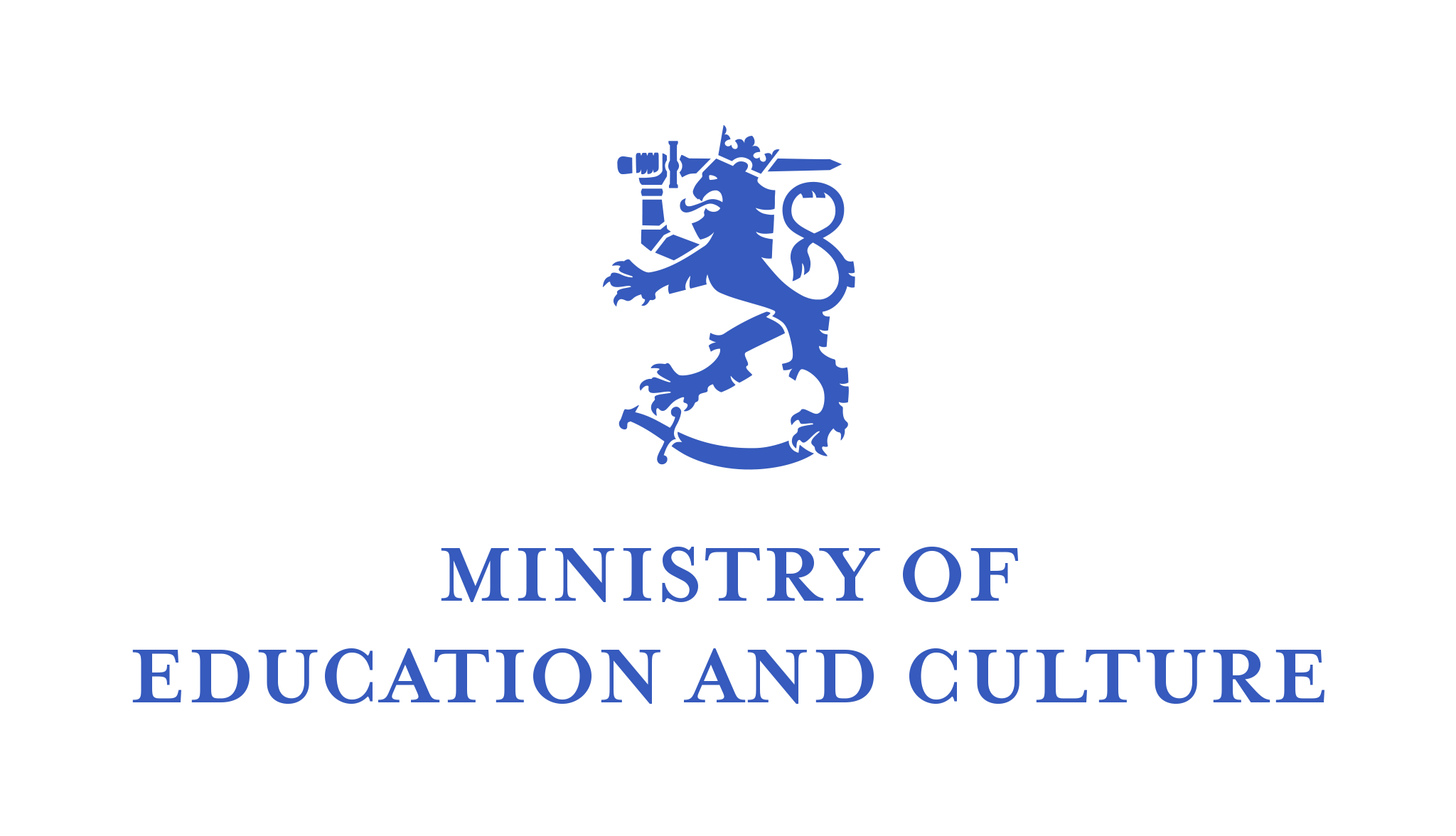Within the Government, the Ministry of Education and Culture is responsible for developing education, science, cultural, sport and youth policies, and for international cooperation in these fields. The Ministry's mandate also covers student financial aid, issues related to churches and religious communities, and copyright questions.
The Ministry is responsible for the skills and creativity base of the future. As a promoter of culture, the Ministry develops conditions for know-how, lifelong learning, creativity and citizens' social participation and well-being.
The Ministry directs and implements actions set out in the government programme in its branch of administration. Key instruments in performing this work are strategic policies, legislation, allocation of budget resources and performance guidance and management by information in the sector. The Ministry drafts acts, decrees and decisions concerning its administrative branch for the Government and the Parliament. In addition, the Ministry can issue decisions, orders and instructions.
The Ministry prepares the state budget for its administrative branch, allocates appropriations to government agencies and gives grants and transfers to municipalities, joint municipal authorities and private organisations.
Typical jobs
Some 250 people work at the Ministry of Education and Culture. Typical job titles at the Ministry include senior advisor, counsellor of education, planning officer, counsellor for cultural affairs, counsellor of government and administrative assistant.
Personnel educational background
Approximately 90 % of the Ministry of Education and Culture's personnel have a higher education degree. Those working in legislative and expert roles mainly have a higher education degree, while those in assisting roles usually have a secondary level degree. The most common qualifications include Master of Arts, Master of Political Science, Master of Laws, Master of Social Sciences, Bachelor of Business Administration and a Vocational Qualification in Business and Administration.
The personnel is one of the key resources on which the Ministry relies to fulfil its mission. The Ministry of Education and Culture aims to be a competitive employer that develops its work community and complies with good personnel policy. The efforts to develop the Ministry's activities are underpinned by strategic planning and various action and development plans. Many types of investments have been made in developing personnel competence. To ensure more effective knowledge transfer, a versatile induction programme is used at the Ministry.
WEBSITE
Read more about us on our website.
SOCIAL MEDIA
LinkedIn

Request help
Valtiolle.fi is the job search service of the Finnish government. Our service is a showcase for working in the state and an application channel for open jobs and internships in the state. Our service constantly has hundreds of positions open for versatile work tasks in Finland and abroad.
Follow us on social media
See the service's data protection policies and accessibility policy
Give feedback about the site or on accessibility.
This browser is not supported
Use for example Chrome